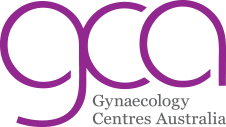By no later than May 11, 2023, we expect to learn the outcome of a Senate inquiry into reproductive healthcare in Australia.
The first of its kind in this country, the broad and historic Australian government Senate inquiry will primarily focus on existing inequalities in contraception and abortion access for women across Australia.
Women and doctors in this country are increasingly faced with inconsistency in available services for sexual and reproductive healthcare. This is, in part, due to a lack of experienced practitioners and an inadequate number of service providers who are skilled in dealing with the specific complexities related to this area of medicine. There is also a distinct lack of appropriate training opportunities.
These are placing women at risk – and they deserve better.
Abortion Access – a “Postcode Lottery”
While abortion is legal (with conditions) throughout Australia, access to legal, safe abortion is currently something of a “postcode lottery”. Depending on where a woman lives, there are vastly different costs, rules, regulations, and levels of availability of abortion services, as well as for other reproductive health services and options.
Too many women are forced to travel long distances at considerable cost to access what is basic medical care; for a lot of women, it’s simply not a feasible option.
For example:
- Only approximately 3,000 GPs (out of more than 38,000 nationwide), and only 25% of community-based pharmacists are currently registered Australia-wide to prescribe and supply MS-2 Step, which is required for medical abortions.
- Long-acting reversible contraception (e.g., Mirena, a hormonal intrauterine system) is similarly difficult for many women to access.
Nurses are currently unable to provide these services due to legal and funding barriers.
- As many as 30% of Australian women live in areas without access to medical abortion, with at least 50% in remote areas having no access.
- In 2019, not a single GP in the Northern Territory was prescribing MS-2 Step. In South Australia, medical abortion was still prohibited outside a hospital. There was also no availability or access to these services for women in large parts of WA and throughout the eastern seaboard.
- GP trainees are offered little or limited opportunity for skills-based training for the provision of contraception or abortion services, especially in public hospitals.
- Most public hospital sexual health services in Australia currently focus on sexually transmitted infections and blood-borne diseases, as well as emergency treatments for trauma, rather than basic contraception and abortion services.
Access to abortion and contraception, alongside unbiased information, support, and other women’s health services are basic essential healthcare. As such, access to these should be equal and universal across this country regardless of a woman’s age, marital status, geographic, social, economic, or cultural circumstances, or any other factor.
Australian Reproductive Healthcare & the Senate Inquiry
Initiated by the Greens earlier in 2022 and referred to the Senate Community Affairs References Committee on September 28, 2022, the inquiry aims to consider a set of priorities presented by the National Women’s Health Strategy 2020-2030 regarding the “universal access to sexual and reproductive health information, treatments, and services (offering) options to women to empower choice and control” for making the decisions they should be solely entitled to make about their own bodies.
The motion was initiated by Greens’ Senator Larissa Waters, who highlighted the need for Australia’s federal government to implement a more cohesive approach to reproductive health, particularly in light of the post-Roe v Wade perspective.
This must include necessities such as
- Sexual healthcare and education
- Contraception
- Unbiased counselling
which are too often unaffordable and/or inaccessible, especially for women in minority, remote, or vulnerable communities.
The Terms of Reference for the Inquiry include (paraphrased):
- Availability and costs for contraceptives, including TGA approval processes; PBS coverage; availability/awareness of reversible long-acting contraceptives for women; male contraceptive alternatives; improved access to contraceptives (over-the-counter access, enabling pharmacist prescribing, and longer duration for prescriptions to mitigate the need for and costs of frequent GP visits).
- Accessibility and costs of pregnancy care, miscarriage care, and abortion services throughout Australia, especially in rural and remote locations.
- Reproductive healthcare services workforce development (GP training, nurse-led care, allied health).
- Approaches for culturally appropriate and trauma-informed best practices for reproductive and sexual health service delivery.
- Consideration of the experience of people with disability when accessing sexual and reproductive healthcare
- Consideration of the experience of non-binary, transgender, and those with variations of sex characteristics when accessing sexual and reproductive healthcare
- Employee reproductive health leave availability
- Sexual and reproductive health literacy
Submissions for the inquiry were open from September 28, 2022, until December 15, 2022, and were welcomed from consumers, doctors, nurses, family planning organisations, women’s groups, primary care groups, sexual and reproductive health organisations, and others (including those who oppose access to abortion and/or contraception).
(As an example, see the Australian Nursing and Midwifery Federation submission here.)
Originally due by March 31, the reporting deadline has been extended to no later than May 11, 2023.
It is hoped that the results of this inquiry will align Australia with other countries including England, Scotland, and Ireland, where legal frameworks exist for access to contraception and abortion, as well as for the expansion of the health workforce to support these critical areas.
Reproductive Healthcare and Abortion Services – Gynaecology Centres Australia
Gynaecology Centres Australia is a NSW and ACT-based private clinic offering women safe, legal first-trimester abortion services.
With clinics in Greater Sydney, Newcastle, Gosford, Wollongong, and Queanbeyan, we offer a comprehensive range of women’s sexual and reproductive health services in a professional, confidential, and understanding medical clinic setting. We are staffed by experienced, empathic, specialist doctors and nurses.
From surgical abortions to contraception, pregnancy and miscarriage care to cervical screening, fertility advice, general gynaecology, counselling and vasectomies for men, we provide specific care in these areas that women deserve access to.
You do not need a GP referral to visit our clinic.
Please call 02 9585 9599 or complete our online booking form.
